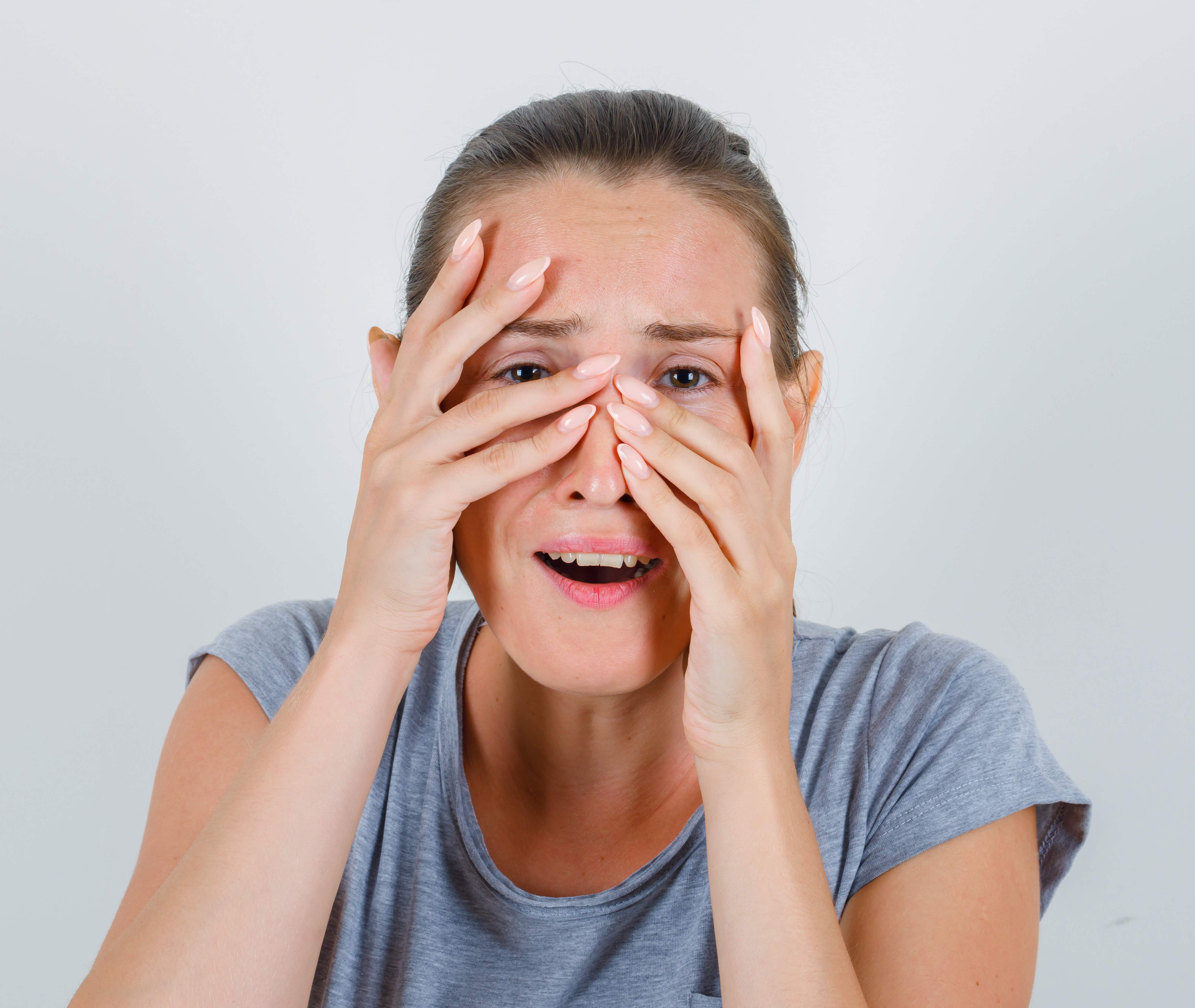What habits can damage eye health?

Sometimes, we live a lifestyle that is designed to harm our health - probably unintentionally or unknowingly - including that of important organs such as our eyes.
One example, among many others, is vigorously rubbing your eyes or spending long hours in front of screens, the latter often due to work-related needs. Both cases result in damage to the ocular surface , explains Dr.Claridanea García Vargas, an ophthalmology specialist.
She warns that frequent eye rubbing can deform the collagen fibers that make up the cornea, causing a deformity called keratoconus, which causes elevated astigmatism, compromising vision.
Regarding exposing your eyes to screens for long hours , he explains that it can cause "dry eyes" because the blinking frequency decreases.
"When we blink, we spread a layer of tears that keep the surface of the eye moist and protected. Under normal conditions, a person blinks between 15 and 20 times per minute; when using a computer, cell phone, or television, they blink 5 to 7 times per minute. When we blink more frequently, the tear film evaporates more quickly, causing a feeling of grittiness and dryness."
However, as we've already said, these are just a few examples of many. "Nowadays, in the middle of summer , there are other habits that alter the ocular surface, causing dry eyes, and we don't even realize it," he says, breaking down others:
- Exposing ourselves to air conditioning or fans directly on our faces, as this causes tears to evaporate.
- Swimming in pools, beaches, and/or rivers while wearing contact lenses. In addition to dryness, this makes the eye vulnerable to corneal infections.
- Exposure to pool chemicals, such as swimming on beaches without proper protection such as swimming goggles, could cause chemical conjunctivitis.

Frequently using eye makeup can be more harmful to the surface of the eye than you might imagine, warns García Vargas, who offers services at the Diabetes, Obesity, and Specialties Medical Center (Cemdoe).
The same goes for the use of accessories like false eyelashes . "If you overuse one or both, you can clog some very important glands in your eyelids called the Meibomian Glands."
These glands are responsible for producing a layer of fat , sebum , which forms part of the tear film and prevents the tear from evaporating quickly.
"If these glands become clogged with makeup residue, glue, or bacteria, the tear film doesn't stay stable, so it begins to evaporate prematurely, and that's when discomfort begins: burning, itching, blurred vision , and dry eyes."
Another threat posed by this type of excess is the obstruction of the meibomian glands, which when they become inflamed or infected, give rise to the famous styes, "that painful little lump that looks like a pimple, chalazion, which are like hard bumps, but without pus or pain."
As for false eyelash glue, which not only covers the glands, -he points out- but also contains chemical components that can generate allergic reactions in the skin of the eyelid, cause irritation, and if it accidentally falls into the eye, it can injure the corneal surface and cause keratitis (inflammation of the cornea), he assures.
"Now, I'm not telling you to stop wearing makeup; you can do it consciously ," she clarifies, while giving the following recommendations:
- Remove your makeup thoroughly every night, no excuses. Use specific eye products, preferably hypoallergenic.
- Avoid lining the inner waterline of your eyelid (the line between your upper and lower lashes). This is where the meibomian glands are, and makeup blocks them.
- Replace your eye makeup frequently. Bacteria love old mascara and eyeliner. NOTE: Each product's shelf life is indicated in its instructions (you can find the one for each eye product: mascara, eyeshadow, mascara, concealer).
- Clean brushes and applicators at least once a week.
"And about false eyelashes ... I'm not going to tell you to wear them "whenever you want" because that's not a good idea. I prefer to advise you to reserve them for certain occasions, when the event truly warrants it."
She also suggests that "if you're going to use them, use a good quality, hypoallergenic glue , and don't sleep with them on."
TOPICS -
Diariolibre





